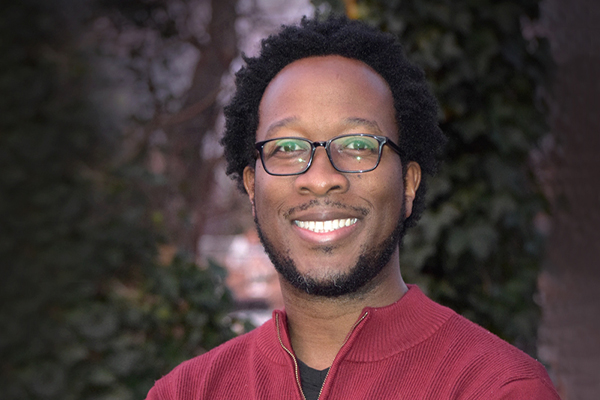“You don’t know what you don’t know.” It’s a phrase that Marcus Wright, undergraduate program manager and academic coordinator in the Department of Sociology, says perfectly sums up the challenges faced by first-generation students. Wright’s paper, “Generation-Blindness and the COVID-19 Websites of Highly Selective Universities,” addresses what he refers to as a blind spot on the part of universities in regard to communicating with first-generation students.
It was published as part of the Penn Education and Inequality Working Papers series within the Department of Sociology. But it goes far beyond COVID. Wright says higher education’s failure to recognize “the whole person” and the myriad challenges first-generation students face—in and out of college—not only puts tremendous pressure on first-generation students to figure out the answers, but robs the university of the unique contributions these students offer.
“I looked at going to college as this chance to really just go have a lot of fun, explore new things, and meet new people, but there was so much more I didn’t even know that I didn’t know. I became invested in researching inequality in access, choice, outcomes, and experiences in higher education after reading ‘Paying for the Party: How College Maintains Inequality’ by Elizabeth A. Armstrong and Laura T. Hamilton. … I learned more about the terminology of “first-generation students” and discovered that I am one. These realizations really drive a lot of what I’m doing currently in terms of trying to break down barriers for first-generation students and push for more equity and better opportunity.”
Moving to a remote-learning model due to the pandemic created an unusual opportunity for Wright’s research. “This unprecedented pandemic created a situation where the universities all felt like they had to put up a dedicated COVID-19 website to maintain communication with students and their families. This was an opportunity, when all the chips were down, to gain some insight on what the priorities of these institutions really were.”
After analyzing 24 different university COVID-19 websites, all but one had failed to take into account the specific needs of first-generation students, and address this population of students directly.
“In advising students—especially in the Sociology department where we have quite a few first-generation students—hearing their stories really put a fire to me. It came to a head when one student told me that they did not feel like they belonged at Penn. This was one of the smartest students I’ve ever seen. I was just baffled and heartbroken by that. Why do we always put all of the pressure on the students to figure things out at our institutions? We say, ‘The institution is this, so the students need to learn how to do this.’ I think it should be the opposite. We as institutions need to reimagine ourselves so that we’re better at valuing and rewarding what first-generation students bring to our institution.”
Read more at OMNIA.








